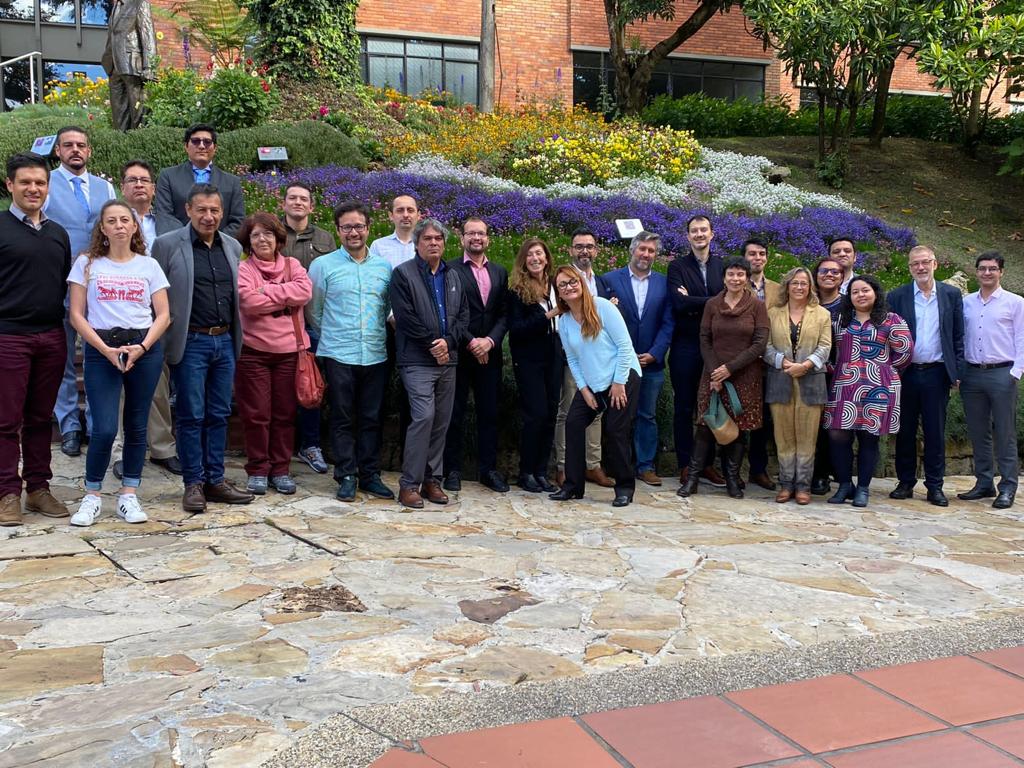
The line of research on “Genetic Resources” aims to identify public policies at the national and regional level that ensure the effectiveness of the genetic resources protection system, taking into account the sovereign rights of States guaranteed in the Convention on Biological Diversity and in its Nagoya Protocol without unjustifiably harming users’ innovation and economic activities.
The first workshop of this project was held in June 2023 at the Externado University of Colombia and aimed to detect difficulties that users face in obtaining legal access to genetic resources in Latin America, especially concerning the prior and informed consent (PIC) and the negotiation of mutually agreed terms (MAT). Academics, authorities, and users of genetic resources in Latin America with extensive knowledge and experience on the subject attended the workshop.
It was concluded that the existing access and benefit-sharing (ABS) mechanisms in Latin American countries are usually inadequate for achieving their objectives. Among others, this is due to the absence of (i) clear ABS rules, (ii) institutional coordination at the national level (e.g. due to division of competencies, definition of priorities, and establishment of sectoral clauses), (iii) proportionality of requirements for PIC and MAT, (iv) differentiation between access for commercial and non-commercial use, (v) appropriate model clauses and (vi) regional standards for access to transboundary resources.
The experts also discussed ways to resolve the highlighted problems. They recommended improving regulatory integration at the national level (especially between different ministries) and adopting model clauses for PIC and MAT. The regulation implemented in Brazil in 2015 was also a subject of discussion. It has given greater flexibility for users and contributed to an increase in the volume of shared benefits. In light of this, a potential question for future academic research is to what extent this regulation may satisfy the local needs and be extendable to other Latin American countries.
The results of this workshop are helpful not only for the elaboration of regulatory recommendations on access to genetic resources at the national and regional levels but also for the analysis of measures that can contribute to the effectiveness of rules on access, benefit sharing and control, as well as those relating to sanctions in case of infringement.
Participants:
SIPLA Team
Pedro Henrique D. Batista (Max Planck Institute for Innovation and Competition, Germany)
Roxana Blasetti (Buenos Aires Observatory of the SIPLA Initiative)
Carlos Conde (Externado University of Colombia and Bogotá Observatory of the SIPLA Initiative)
Reto M. Hilty (Max Planck Institute for Innovation and Competition, Germany)
Manuel Guerrero (Externado University of Colombia and Bogotá Observatory of the SIPLA Initiative)
Juan I. Correa (Buenos Aires Observatory of the SIPLA Initiative)
Gabriel Severo Venco Teixeira da Cunha (Buenos Aires Observatory of the SIPLA Initiative)
Nicolás Hermida (Buenos Aires Observatory of the SIPLA Initiative)
External Attendees:
Ana Paula Viana (Natura – Brazil)
Andrea Hernández (Ministry of Environment and Sustainable Development – Colombia)
Andres Valladolid (INDECOPI – Peru)
Efrain Torres Ariza (Ministry of Environment and Sustainable Development – Colombia)
Henry Novion (Ministry of Environment and Climate Change – Brazil)
Johanna Castiblanco Puentes (National University of Colombia)
Jorge Cabrera Medaglia (International Consultant and Professor at the University of Costa Rica)
Jorge Gomes (Colombian Agricultural Institute)
Juan Pablo Rosas Morales (National University of Colombia)
Lenin F. Núñez Caballeros (National Biodiversity Institute – Ecuador)
Luis Alejandro Garcia Romero (Ministry of Environment and Sustainable Development – Colombia)
Maria Hersilia Bonilla Cortes (Agrosavia – Colombia)
Monica Serrat (Ministry of Environment and Sustainable Development – Colombia)
Omar Vacas Cruz (Ethnopharmacological Research Center Ingandu – Ecuador)
Paula Durruty (National Wild Life Federation and Union of Production Guilds – Paraguay)
Pierina German Castelli (Consultant in Public Policies and Environment – Uruguay)
Susana Fiorentino (Professor at Pontificia Universidad Javeriana – Colombia)